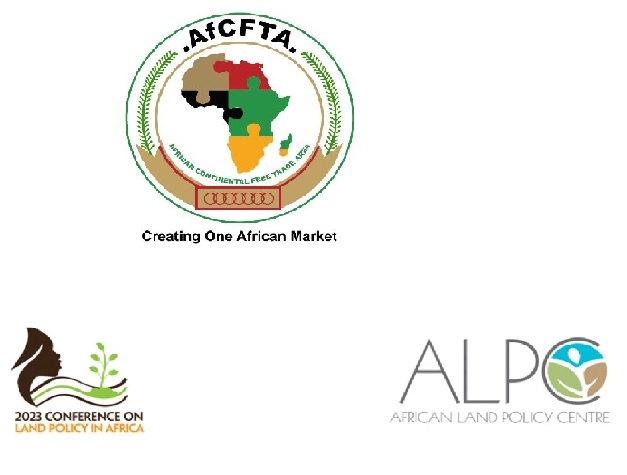Sustainable, Harmonized Land Policies Needed in Acceleration of AfCFTA - ENA English
Sustainable, Harmonized Land Policies Needed in Acceleration of AfCFTA

Addis Ababa ,November 24/2023(ENA)- African countries should promote sustainable land governance in the acceleration of the implementation of the African Continental Free Trade Area (AfCFTA), agreed panelists during a panel session at the ongoing 2023 Conference on Land Policy in Africa.
The 5th edition of the Conference on Land Policy in Africa (CLPA) is underway in Addis Ababa under the theme: “Promoting Sustainable Land Governance in Africa for Accelerating Implementation of the African Continental Free Trade Area agreement (AfCFTA).
Panelists during a panel session at the conference urged African countries to promote sustainable land governance with a view to accelerating the implementation of AfCFTA).
Director of the Regional Integration and Trade Division at the Economic Commission for Africa (ECA), Stephen Karingi, said if fully implemented, the AfCFTA will boost intra-African trade by around 34.6 percent in 2045 equivalent to a gain of 204.3 billion USD.
According to estimates by the Economic Commission for Africa (ECA), this will bring substantial benefits to agrifood, services, industry and energy/mining sectors.
“Issues of land play an important part in this equation, because manufacturing and value addition will require raw materials to be produced on land; investments in value added sectors will also need access to land,” said Karingi in the panel session, themed Land Governance, Regional Integration and Intra-Africa Trade: Opportunities and Challenges.
Without land resources, we cannot optimize the AfCFTA; success will require harmonizing land laws across boundaries, Karingi added.
He further stated that the flip side of the coin in the drive to increase trade and expand on requisite infrastructure is the question of sustainability.
Karingi stressed the need to approach the nexus between land resources and the AfCFTA with a sustainability lens and said that a preliminary study by the ECA indicates that the AfCFTA if fully implemented will considerably increase African trade without adding significant pressure on climate change.
Pursuing existing National Determined Contributions (NDCs) or establishing an African carbon market on top of the AfCFTA reforms would substantially reduce Green House Gas (GHG) emissions.
“Although there is a tradeoff between reducing GHG emissions and spurring economic benefits, establishing an African Carbon market is particularly effective at reducing GHG emissions, while largely preserving foreseen economic benefit from the AfCFTA,” said Karingi.
Head of Capacity Building and Technical Assistance in the AfCFTA Secretariat, Tsotetsi Makong said Africa receives about 3.5 percent of the foreign direct investment (FDI). The connection between FDI and access to land, part of which lies in the hands of customary custodians and traditional leaders needs a regulatory framework.
“Most of these investments are in the extractives and commodities sector. The AfCFTA protocol on investment should foster intra African investment, which we are now calling African Direct Investments (ADI), so that Africans can freely invest on the continent and ensure that their investments are protected,” said Makong.
The success of the investment protocol under the AfCFTA will depend on countries’ domestic laws and the alignment of such laws with the AfCFTA.
“There are guidelines on land reforms that need to be turned into regulations within the domestic systems. Policy coherence has to be at the heart of what we do. This can be achieved by engaging everyone, including women and youth at the grassroots level,” said Makong.
Eileen Wakesho, Director, Community Land Protection at Namati, Kenya said the focus on AfCFTA is mainly on the movement of goods, services and people and the economic benefits to be accrued, however the biggest challenge is that access to land in Africa is not equal.
Understanding the impact of the AfCFTA to customary rights and land acquisitions and learning from traditional authorities, including asking key questions such as does the AfCFTA require more land acquisition and whose land will be acquired?
Experts from government, academia, research, traditional authorities and other non-state actors, as well as the private sector, and development partners are participating at the four day conference that kicked of last Tuesday.